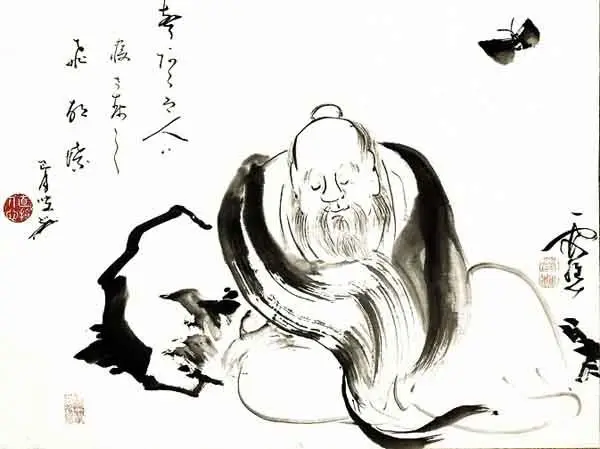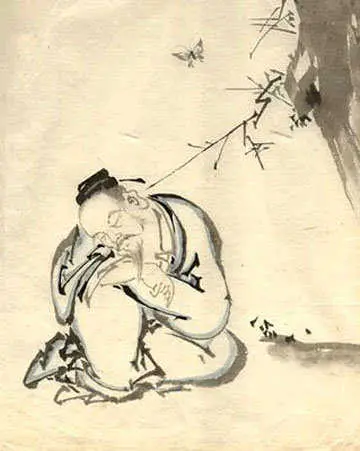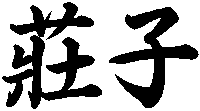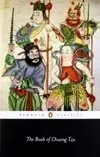|
Tao Te Ching
THE TAOISM OF LAO TZU
|
Chuang Tzu 3 The Taoist Text, Chapter 3
Nourishing the Lord of Life.1. There is a limit to our life, but to knowledge there is no limit. With what is limited to pursue after what is unlimited is a perilous thing; and when, knowing this, we still seek the increase of our knowledge, the peril cannot be averted. There should not be the practice of what is good with any thought of the fame (which it will bring), nor of what is evil with any approximation to the punishment (which it will incur):- an accordance with the Central Element (of our nature) is the regular way to preserve the body, to maintain the life, to nourish our parents, and to complete our term of years.
2. His cook was cutting up an ox for the ruler Wan-hui. Whenever he applied his hand, leaned forward with his shoulder, planted his foot, and employed the pressure of his knee, in the audible ripping off of the skin, and slicing operation of the knife, the sounds were all in regular cadence. Movements and sounds proceeded as in the dance of "the Mulberry Forest" and the blended notes of "the King Shâu." The ruler said, "Ah! Admirable! That your art should have become so perfect!" (Having finished his operation), the cook laid down his knife, and replied to the remark, "What your servant loves is the method of the Tâo, something in advance of any art. When I first began to cut up an ox, I saw nothing but the (entire) carcase. After three years I ceased to see it as a whole. Now I deal with it in a spirit-like manner, and do not look at it with my eyes. The use of my senses is discarded, and my spirit acts as it wills. Observing the natural lines, (my knife) slips through the great crevices and slides through the great cavities, taking advantage of the facilities thus presented. My art avoids the membranous ligatures, and much more the great bones. "A good cook changes his knife every year;- (it may have been injured) in cutting; an ordinary cook changes his every month;- (it may have been) broken. Now my knife has been in use for nineteen years; it has cut up several thousand oxen, and yet its edge is as sharp as if it had newly come from the whetstone. There are the interstices of the joints, and the edge of the knife has no (appreciable) thickness; when that which is so thin enters where the interstice is, how easily it moves along! The blade has more than room enough. Nevertheless, whenever I come to a complicated joint, and see that there will be some difficulty, I proceed anxiously and with caution, not allowing my eyes to wander from the place, and moving my hand slowly. Then by a very slight movement of the knife, the part is quickly separated, and drops like (a clod of) earth to the ground. Then standing up with the knife in my hand, I look all round, and in a leisurely manner, with an air of satisfaction, wipe it clean, and put it in its sheath." The ruler Wan-hui said, "Excellent! I have heard the words of my cook, and learned from them the nourishment of (our) life."

Chuang Tzu
 The Book of Chuang TzuA modern translation of Chuang Tzu, by Martin Palmer and Elizabeth Breuilly.See the book at Amazon
About CookiesMy Other Websites:I Ching OnlineThe 64 hexagrams of the Chinese classic I Ching and what they mean in divination. Try it online for free.
Qi Energy ExercisesThe ancient Chinese life energy qi (chi) explained, with simple instructions on how to exercise it.
Life EnergyThe many ancient and modern life force beliefs all over the world explained and compared.
Taoismen på svenska
Other Books by Stefan StenuddClick the image to see the book at Amazon (paid link).
The Greek philosophers and what they thought about cosmology, myth, and the gods. |
 Tao Te Ching
Tao Te Ching Tao Quotes
Tao Quotes Fake Lao Tzu Quotes
Fake Lao Tzu Quotes Cosmos of the Ancients
Cosmos of the Ancients Qi — Increase Your Life Energy
Qi — Increase Your Life Energy Aikido Principles
Aikido Principles Life Energy Encyclopedia
Life Energy Encyclopedia Archetypes of Mythology
Archetypes of Mythology Psychoanalysis of Mythology
Psychoanalysis of Mythology Stefan Stenudd
Stefan Stenudd